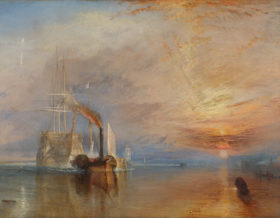Carrying out historical enquiries
This guide is applicable for all age groups, you can download a free, printable PDF version here.
Understanding how to carry out historical enquiries – how to find things out about the past – is an essential part of students’ history learning. It involves asking and answering relevant questions, looking carefully and critically at different historical sources such as objects, paintings and letters, considering different perspectives, developing and testing ideas, weighing up evidence, and formulating arguments and conclusions. Students can begin doing this right from the beginning of their school careers.
All enquiries – from the simplest to the most complex – involve the following steps:
- Ask a question about the past
- Find and select a range of sources and evidence to answer the question
- Critically use the selection of sources and evidence to answer the question
- Formulate an answer that fits with the evidence
- Present the answer
This often leads to new questions and the process starts all over again.
Young children will need help with some of the stages – they will need to be given an appropriate question to answer, such as ‘How was transport different in the past?’, a set of suitable sources such as images of different modes of transport past and present, and support in asking and answering relevant questions that will help them unpack the evidence. Our Guide to using objects, artworks and other sources to find out about the past includes tips and ideas to help with this.
As their skills develop, students learn to:
- Identify useful sources
- Gather, select, assess and present evidence
- Hypothesise
- Formulate relevant questions
- Assess reliability and bias
- Look at multiple perspectives – was everyone’s experience the same..?
- Think about what/which voices might be missing?
- Develop and substantiate answers, arguments and narratives
It can be a good idea to relate an enquiry to students’ lives or their locality in some way to give it meaning and relevance – especially for younger students for whom people and events of the past can all seem a bit ‘long ago and far away’. For example, before enquiring into transport of the past, students could begin by considering which transport they are aware of today – how have they travelled, where to, was it a long or short journey, how is it powered? Or try relating an enquiry question directly to them: What did the Age of Revolution ever do for me?
This resource includes a range of primary sources, objects, paintings, accounts – even songs, from museum and gallery collections across the UK. Each one is accompanied by information (secondary sources) written by historians who have, themselves, followed the five enquiry steps. These can be used, together with activities for helping students unpack some of these sources, to conduct a range of enquiries into the extraordinary people, events and ideas of the Age of Revolution (1775 – 1848), following the five steps above. Teachers can assess the extent to which their students need support with each stage.
Developing enquiry questions
Asking students to develop their own enquiry questions not only develops their history skills and understanding, but also helps to make sure their learning is relevant to their own interests and appropriate to their level of knowledge and understanding.
Try showing students an image of a person, object or event associated with the historical theme they are learning about. Ask them to look closely at it and think about what they would like to know. Students could come up with a series of questions which begin:
- I wonder what..?
- I wonder who..?
- …?
- …?
- …?
Look at the questions together and choose those which are appropriate to their learning. They may need some help to simplify or extend the question.
Our collection can support historical enquiries about:
- Revolution
- Transport and travel
- Inventions and discoveries
- Abolition of slavery
- Rights and equality
- The Industrial revolution
- The lives and work of women in the past
- The French revolution
- Revolutionary and Napoleonic wars and warfare
- Protest and reform
- Early Victorians
- American Independence
- Revolutionary ideas
- Migration
Revolutionary enquiries
Alternatively, students can undertake or adapt one of the enquiries from this set of enquiries we’ve developed for you:
- How was transport different in the past?
- What might have been on Captain Cook’s shopping list for his voyage to Australia?
- Higher, faster, further…to what extent was there a revolution in the way people travelled by 1848?
- Migration: why did so many people move during the Age of Revolution (1775-1848)?
- Who fought for the abolition of the transatlantic slave trade and what were some of the tactics they used?
- Why did workers protest during the Age of Revolution?
- To what extent did different innovations impact on the spread of ideas in the 19th Century?
- ‘There was a revolution in medicine during the Age of Revolution (1775 – 1848)’. From the evidence you have here, do you agree?
- “The French Revolution was true to its principles of ‘Liberte, Egalite, Fraternite.’” Does the evidence you have here support this interpretation of the French Revolution?


